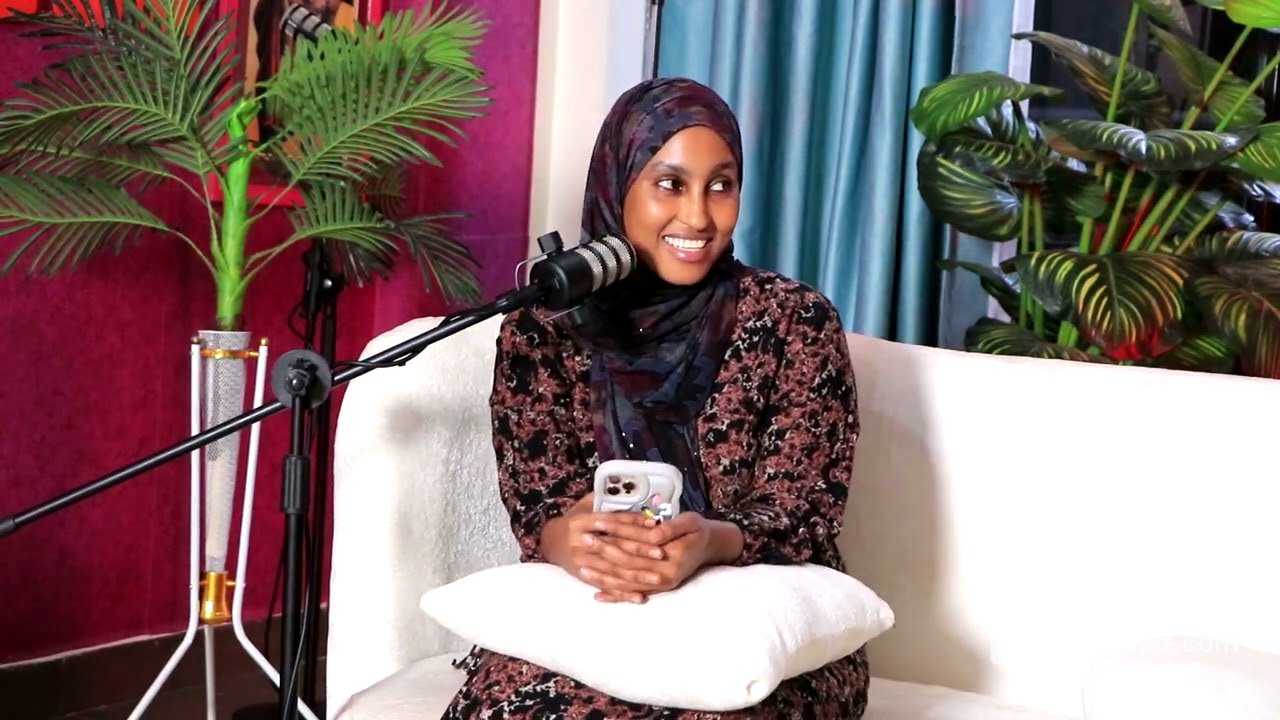TLDR;
This podcast excerpt appears to be a collection of short, fragmented thoughts and interjections, possibly from a conversation or interview. It lacks a clear, central theme, consisting mainly of filler words, musical interludes, and brief Arabic phrases.
- The content is highly disjointed and lacks a clear narrative structure.
- There are several instances of musical interludes, suggesting breaks or transitions in the conversation.
- The presence of Arabic phrases indicates the speaker may be discussing cultural or religious topics.
لام الضح [0:33]
The speaker says "Lam al-dah," which is an Arabic phrase. Without further context, the meaning and significance of this phrase within the conversation are unclear. It could be a reference to a specific concept, name, or idea that is familiar to the speaker and their audience.
طبعا [1:11]
The speaker uses the Arabic word "Taban," which translates to "of course" or "certainly." This suggests agreement or affirmation in response to a previous statement or question. It indicates the speaker's alignment with a particular viewpoint or their confirmation of a fact.
يعني [1:47]
The speaker says "Yaani," an Arabic word that translates to "I mean" or "you know." It's often used as a filler word in conversation to give the speaker time to think or to soften a statement. Its presence suggests the speaker is formulating their thoughts or seeking clarification from the listener.
لكن [1:57]
The speaker uses the Arabic word "Lakin," which means "but" or "however." This indicates a contrast or a change in direction from a previous statement. It suggests the speaker is introducing a different perspective or a conflicting idea.
موسيقى [4:27]
A musical interlude plays. This could signify a transition between topics, a break in the conversation, or simply background music to enhance the listening experience. The specific style and duration of the music could provide further clues about its purpose.
مستقبل [5:17]
The speaker says "Mustaqbal," which is the Arabic word for "future." This suggests the conversation may be turning towards future plans, possibilities, or predictions. It could be a general discussion about the future or a specific focus on a particular aspect of the future.
اوكي [6:16]
The speaker says "Okay," indicating agreement, understanding, or a transition to a new topic. It's a common interjection used to signal that the speaker is ready to move on or that they have acknowledged a previous point.
حج [6:49]
The speaker says "Hajj," which refers to the annual Islamic pilgrimage to Mecca. This suggests the conversation may be related to religious topics, specifically the Hajj pilgrimage. It could be a discussion about the rituals, significance, or experiences associated with Hajj.
uan biladta ina iskud qofka inaid inahayo waxalda [9:46]
The speaker says a phrase in what appears to be Somali, "uan biladta ina iskud qofka inaid inahayo waxalda". Without a translation, the meaning and context of this phrase within the conversation are unclear. It could be a personal anecdote, a cultural reference, or a comment on a specific situation.
قلب [11:19]
The speaker says "Qalb," which is the Arabic word for "heart." This could be a literal reference to the physical organ or a metaphorical reference to emotions, feelings, or the center of one's being. The context would determine the intended meaning.
number number [11:29]
The speaker says "Number number," which could indicate a reference to numerical data, statistics, or a specific sequence of numbers. It might be related to a calculation, a code, or a ranking system.
اوكي [12:55]
The speaker says "Okay," indicating agreement, understanding, or a transition to a new topic. It's a common interjection used to signal that the speaker is ready to move on or that they have acknowledged a previous point.
ح م [15:45]
The speaker says the Arabic letters "Haa" and "Meem." These could be isolated sounds, initials, or part of a larger word or phrase. Without further context, their meaning is unclear.
عليكم باللهكن ال مشروع [17:08]
The speaker says "Alaykum billah lakin al mashroo," which translates to "I adjure you by God, but the project." This suggests a plea or an appeal followed by a contrasting statement about a project. It indicates a sense of urgency or importance attached to the project being discussed.
اوكي [18:49]
The speaker says "Okay," indicating agreement, understanding, or a transition to a new topic. It's a common interjection used to signal that the speaker is ready to move on or that they have acknowledged a previous point.
يعني [19:50]
The speaker says "Yaani," an Arabic word that translates to "I mean" or "you know." It's often used as a filler word in conversation to give the speaker time to think or to soften a statement. Its presence suggests the speaker is formulating their thoughts or seeking clarification from the listener.
شكري شاء [20:39]
The speaker says "Shukri sha'a," which could be a name followed by a verb. "Shukri" is a common Arabic name, and "sha'a" could be related to the verb "to want" or "to will." Without further context, the meaning of this phrase is unclear.
باي باي [21:29]
The speaker says "Bye bye," indicating the end of the conversation or podcast segment. It's a common farewell phrase used to signal departure.









